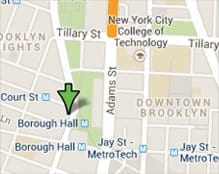What is a Vacated Conviction in a New York Criminal Case
If you kept up with the hit podcast Serial some years ago then you’re familiar with Adnan Syed, accused of killing his girlfriend Hae Min Lee when he was just 17 years ago. Now, at 41, he is out of prison thanks to a prosecutor’s request to vacate his conviction.
Adnan’s case was in Baltimore, of course, but vacated convictions can be possible in some criminal cases here in New York, too.
What is a vacated conviction?
When a judge vacates a conviction it is declaring that the judgment is legally void. This is typically done by appellate courts after lower district courts have already ruled on an issue, though that’s not always the case.
Here in New York, a 440 Motion may be filed in lower courts to ask them to vacate their own judgements. Trial courts do have that right under New York law.
What are the grounds for a post-conviction 440 motion?
A 440 motion may not be filed for just any reason. There are only a handful of reasons why a conviction may be vacated.
- The court that tried the case did not have jurisdiction.
- The state induced a plea deal by fraud.
- Material evidence presented at trial was false and either the prosecutor or the court knew it to be false.
- The defendant was legally incompetent at the time a plea deal was made.
- The defendant had a mental disease or defect making them incapable of understanding or participating in the proceedings.
- Improper and prejudicial conduct that did not appear in the court record occurred during the trial and the conduct, had it appeared on the record, would have resulted in a reversal of judgment.
- New evidence has been discovered since the entry of judgment which could not have been produced by the defendant at the trial even with due diligence on the part off the defense, and is of such character as to create a probability that had such evidence been received at trial, the verdict would have been more favorable to the defendant.
- Forensic DNA testing of evidence has been performed since the entry of a judgment and the court determines this evidence shows a high probability that the defendant was innocent.
- The state violated the defendant’s constitutional rights.
- The case is a deportation case, and the judge has granted relief from deportation.
- The judgment is a conviction where the victim’s participation in the offense was due to having been a victim of child sex trafficking.
A 440 motion does not grant you a new trial, and does not allow you to admit new evidence. It only outlines the evidence that one of the available reasons to grant a 440 motion exists.
Is the 440 motion an appeal?
A 440 motion is not the same as an appeal. It is a step towards an appeal if it is not successful, and should be done first as it allows the defendant to establish certain facts that will be important on appeal later.
What happens a 440 motion is filed?
The court will either vacate the conviction, deny the motion, or order a hearing to explore the facts asserted in the motion.
What happens after a conviction has been vacated?
The state does have the right to try the case again if they so choose. In Adnan Syed’s case that’s unlikely because the state itself requested the vacated conviction, and the evidence in his case has been thoroughly shredded by now.
Yet if the state feels they have the right person, they can take you back to trial if they want.
Avoiding jail is better than vacated convictions or appeals!
I fight hard to keep you out of jail in the first place! While it’s good to explore appeal options, it’s even better to get a good result on your criminal charges before a conviction ever takes place.
If you’re in trouble, don’t hesitate. Call Attorney Neil S. Ruskin today.
See also:
Supreme Court Limits the Court’s Ability to Enforce Miranda Rights
How to Exercise Your 5th Amendment Rights After Getting Arrested in Brooklyn, NY
Office Location
Neil S. Ruskin
188 Montague Street Suite 900
Brooklyn, NY 11201
Local: (718) 237-1547
Fax: 718-875-4011












